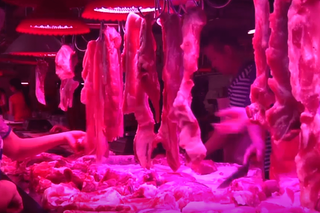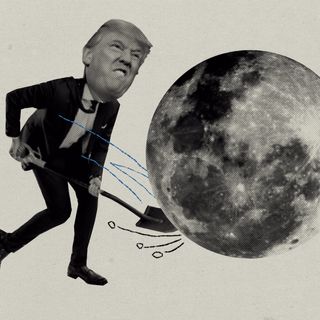
UN Biodiversity Chief Calls for Ban on Wildlife Markets. But Is It Feasible?
The coronavirus pandemic caused global outrage against open meat markets, but banning them isn’t socio-economically viable, say some experts.

Last week, in response to the global coronavirus pandemic, the United Nations’ biodiversity chief called for a global ban on ‘wet markets’ that sell wildlife, alive or dead, for human consumption — saying there was a clear link between the destruction of nature and infections that can be transmitted from animals to human beings. Ever since reports of Covid19 originating in an open meat market in Wuhan, China hit the media, there has been a global outrage against open-air animal markets. But a blanket ban on open air meat markets may be easier said than done.
Animals in wet markets are slaughtered or sold live next to stalls selling fruit and vegetables. Elizabeth Maruma Mrema, the acting executive secretary of the UN Convention on Biological Diversity, cited examples of the Ebola outbreak in west-central Africa and the Nipah virus in east Asia to justify the call for a ban. “The animals have been transported over large distances and are crammed together into cages. They are stressed and immuno-suppressed and excreting whatever pathogens they have in them. With people in large numbers in the market and in intimate contact with the body fluids of these animals, you have an ideal mixing bowl for [disease] emergence,” Professor Andrew Cunningham of the Zoological Society of London, told The Independent. “If you take wild animals and you put them into a market with domestic animals or other animals, where there’s an opportunity for a virus to jump species, you are creating a superhighway for viruses to go from the wild into people,” Dr. Ian Lipkin, an infectious disease expert at Columbia University’s Mailman School of Public Health, added.
The WHO has come under a lot of pressure to ask governments to shut down such markets. However, a ban of this nature can have an enormous socio-economic impact. Wet markets are critical for food security and sustainable development in their respective regions, says a study published in the US National Library of Medicine. Moreover, the cultural roots of the use of wild animals also run deep: not just for food but also for traditional medicine, clothing, ornaments and even pets.
Related on The Swaddle:
A Pandemic Is No Excuse for Racist Attacks Against Indians From the North‑East
“Wet markets are part of the local culture in Asia… It will be difficult to completely replace them as they serve consumers at the lower end of purchasing power, not to mention their cultural preference,” Pavida Pananond, an associate professor of international business at Thammasat University in Bangkok, told Reuters. “Wet markets have been a part of life for many, many centuries. In 2020, they are still an essential part of the culture,” echoed Masami Takeuchi, a food safety officer at the United Nations’ Food and Agriculture Organization. The attraction of wet markets isn’t so different from that of farmers’ markets in Western countries, Bloomberg reported, explaining that consumers consider the meat from these markets fresher since there is little to no refrigeration there, and so, everything must be sold on the same day it is butchered. Takeuchi warned that a shutdown may lead to increased food insecurity, if not implemented properly.
In 2002, the Chinese government had tried to convert many wet markets in cities to supermarkets, but failed because they were no longer able to provide fresh food at a cheaper price, and lost their original customers, Zhenzhong Si, a research associate at the University of Waterloo in Ontario, Canada, who focuses on food security and safety in China, said in an interview. However, the problem is not unique to China alone. “…you have communities, particularly from low-income rural areas, particularly in Africa, which are dependent on wild animals to sustain the livelihoods of millions of people,” even Mrema admitted. Due to the large number of farmers, traders and consumers involved, an erstwhile ban in China had, in fact, exploded into an uncontrollable black market. Pangolins, believed to have been a key carrier of the coronavirus, are reportedly sold on the black market in India.
“The message we are getting is if we don’t take care of nature, it will take care of us,” Mrema told The Guardian. But, noting the sheer number of challenges that must be overcome for such a ban to be effective, she added, “…unless we get alternatives for these communities, there might be a danger of opening up illegal trade in wild animals which currently is already leading us to the brink of extinction for some species. We need to look at how we balance that and really close the hole of illegal trade in the future.”
Devrupa Rakshit is an Associate Editor at The Swaddle. She is a lawyer by education, a poet by accident, a painter by shaukh, and autistic by birth. You can find her on Instagram @devruparakshit.
Related


U.S. President Trump Wants to Mine the Moon, Mars For Minerals
